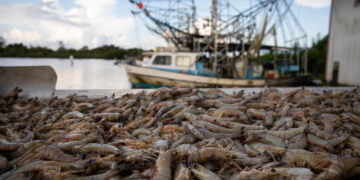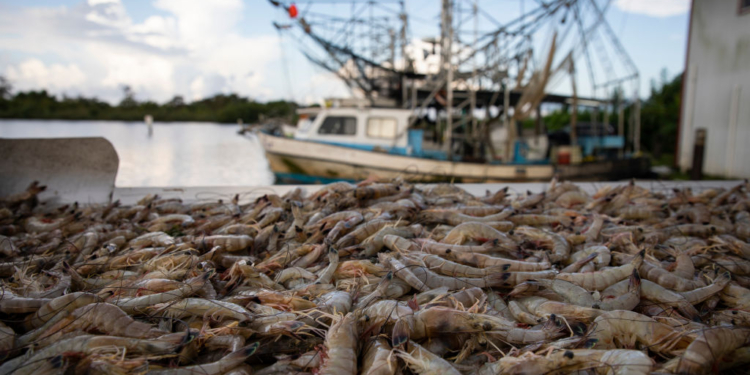President Donald Trump’s implementation of tariffs on foreign imports has caused concern across the board except for one industry — the shrimping industry.
According to Fox Business, American shrimpers are celebrating the latest rounds of tariffs that were announced Wednesday.
Leann Bosarge, the COO of Bosarge Boats, told Fox Business’ reporter Lydia Hu on Friday that the tariffs “threw us a lifeline” in the domestic shrimp industry.
“The U.S. domestic shrimp industry has been on a downward trajectory for decades now as a direct result of the unfair trade in the overseas aquaculture industry for growing shrimp overseas,” Bosarge said. “And these tariffs threw us a lifeline that we needed to hopefully live to fight another day in our industry in this country.”
The value of shrimp caught by the domestic shrimp industry in the Gulf and South Atlantic has sharply declined, dropping from $522 million in 2021 to $269 million in 2023, according to NOAA Fisheries data. This information was reported by the Southern Shrimp Alliance, a trade organization representing shrimp fishermen, processors, and other stakeholders across eight states.
The Southern Shrimp Alliance said imports make up 94% of shrimp eaten in the U.S., with countries such as India, Ecuador, Indonesia, Vietnam, Thailand and Argentina being top producers of the imported shrimp.
Fox Business further reported that Hu said Borsage was “getting paid prices for shrimp that she got paid back in the 1980s and, of course, she’s dealing with 2025 prices of doing business.”
The Southern Shrimp Alliance also said the tariffs “are expected to slow imports and prevent Americans from becoming completely dependent on foreign shrimp producers while the administration addresses harmful trade policies and enforcement deficiencies.”
Executive Director John Williams of the Southern Shrimp Alliance said in a statement that the organization was “grateful for the Trump Administration’s actions,” and noted that the tariffs will “preserve American jobs, food security, and our commitment to ethical production.”

























